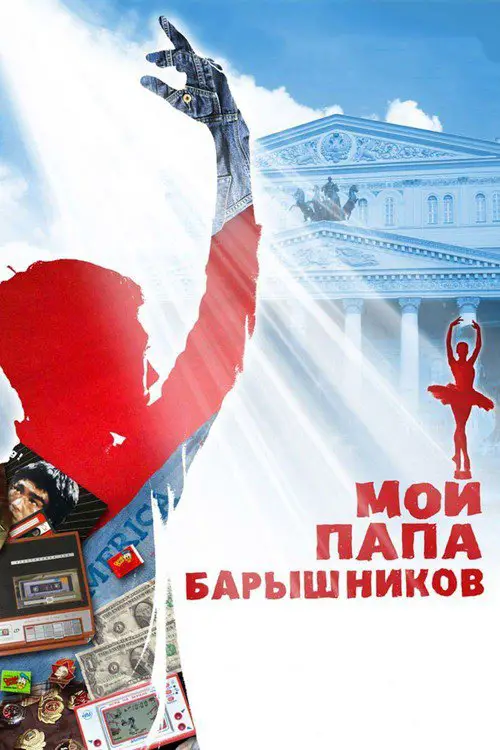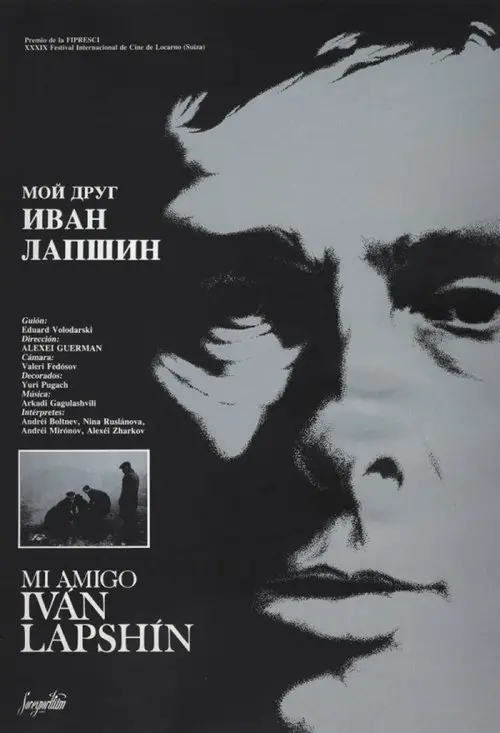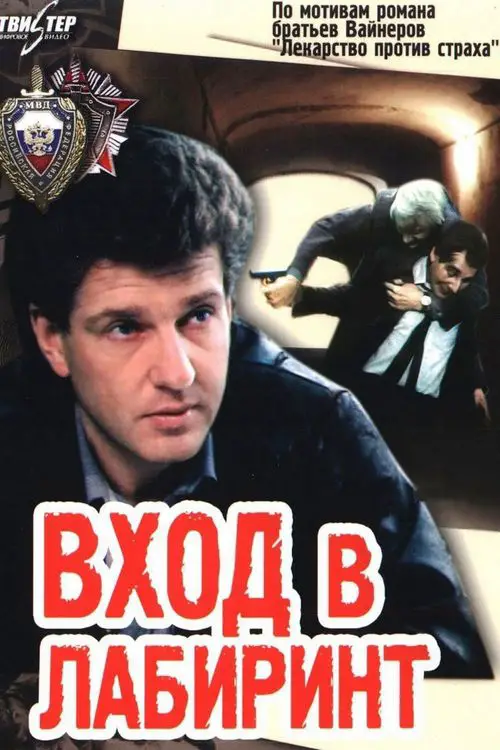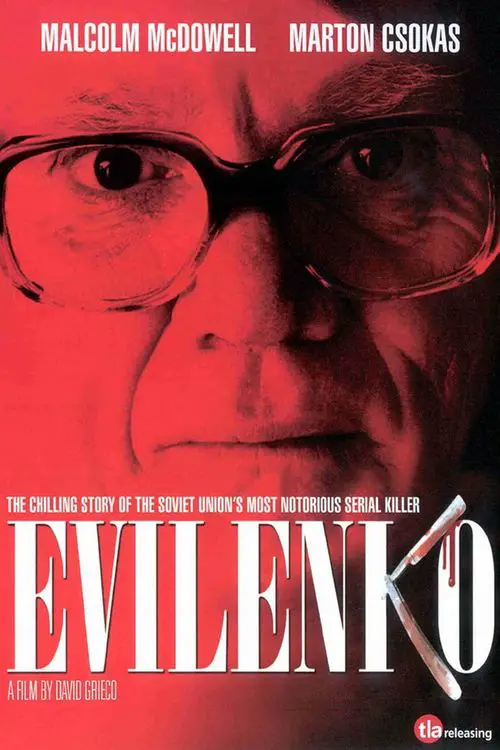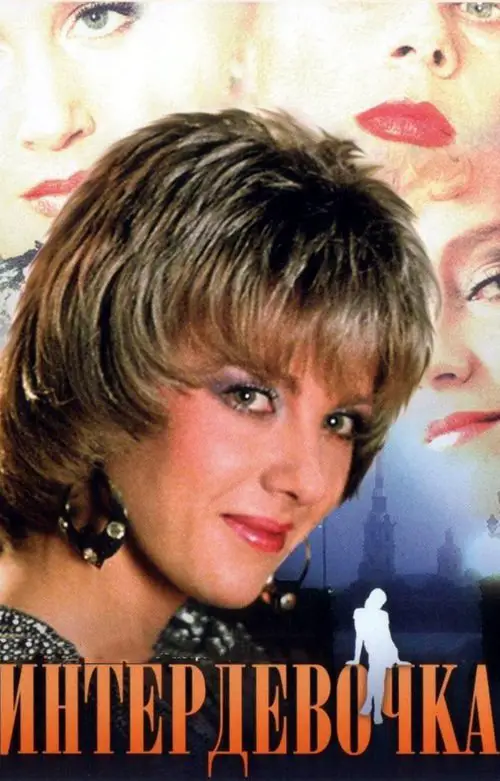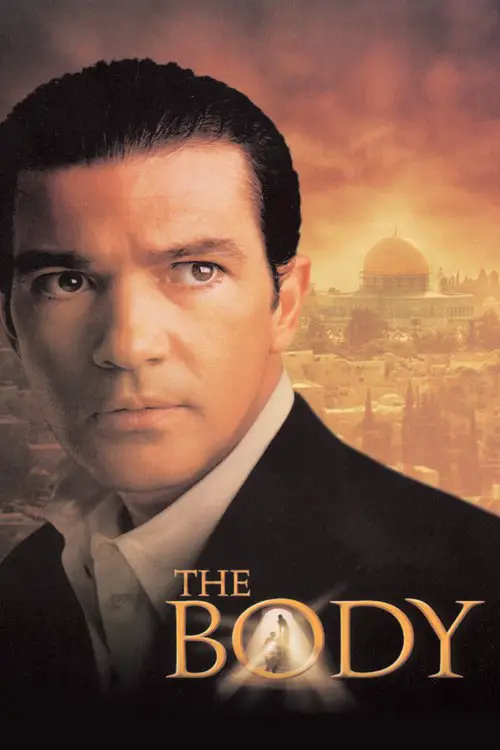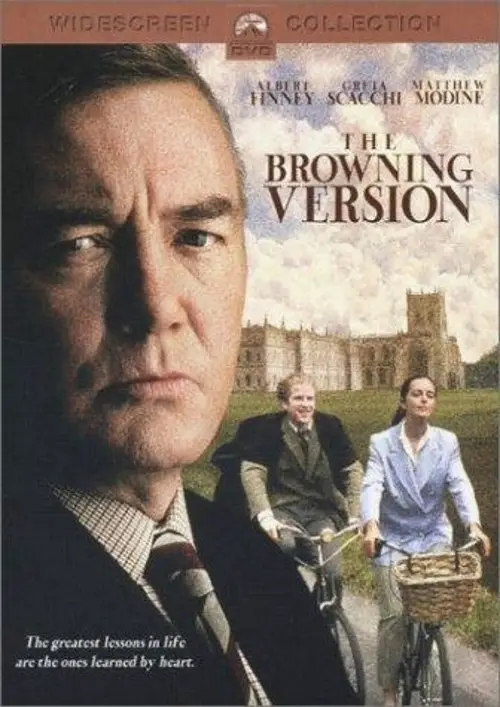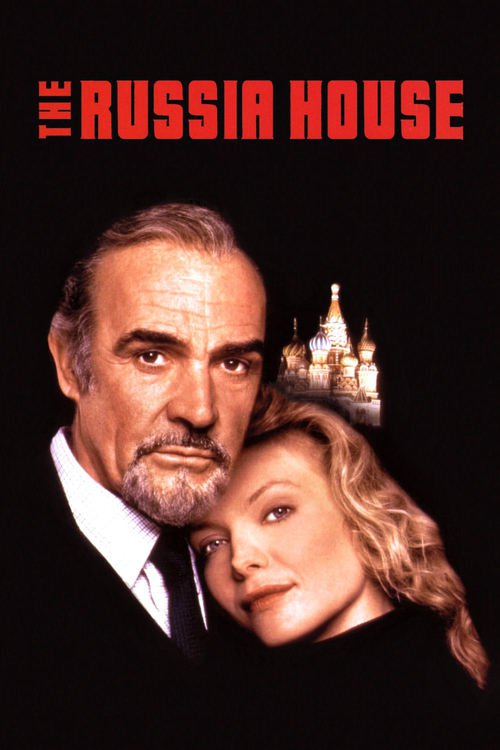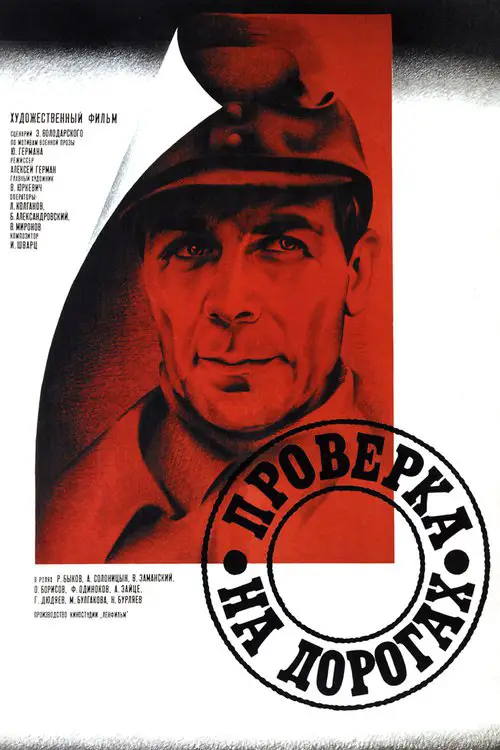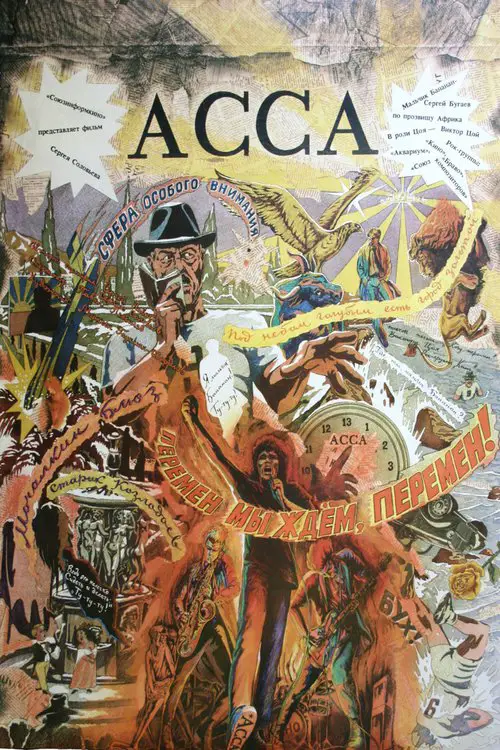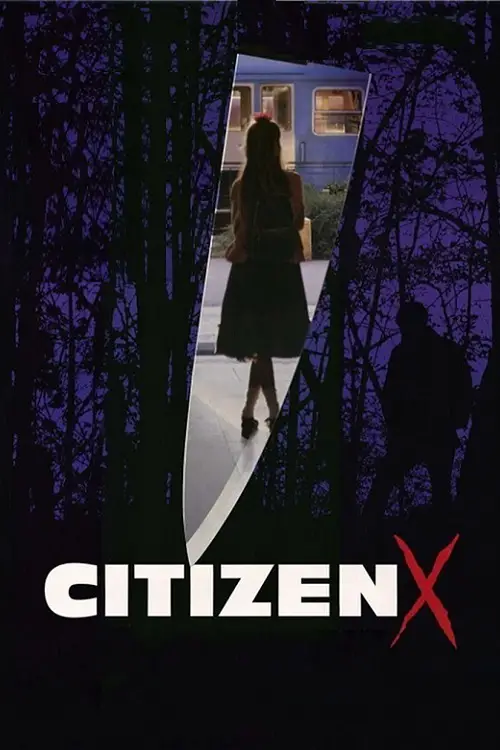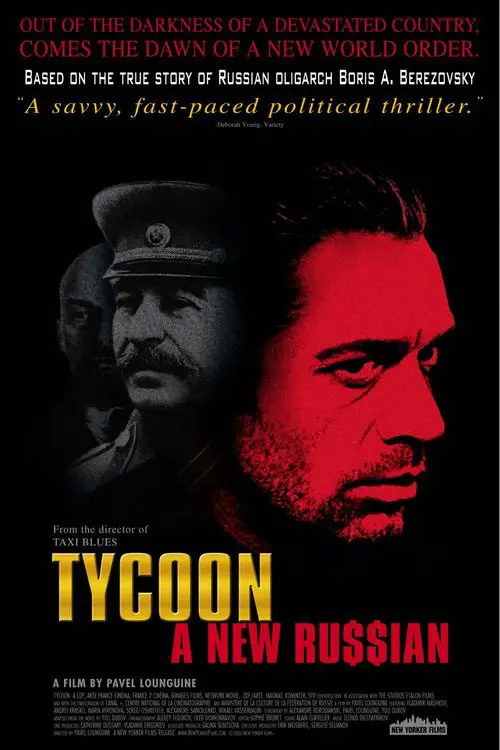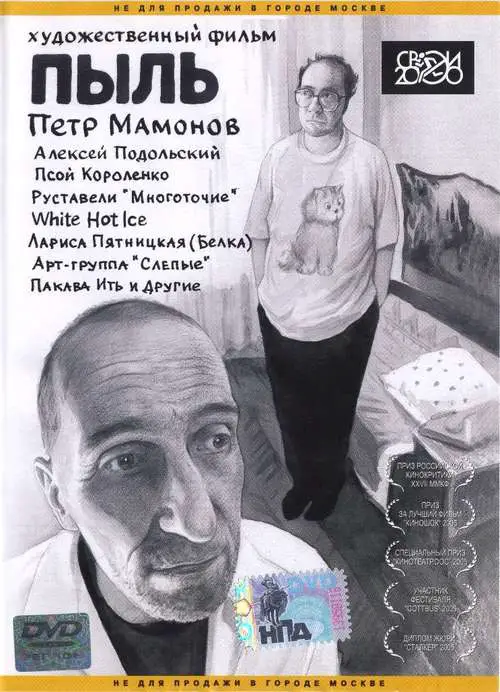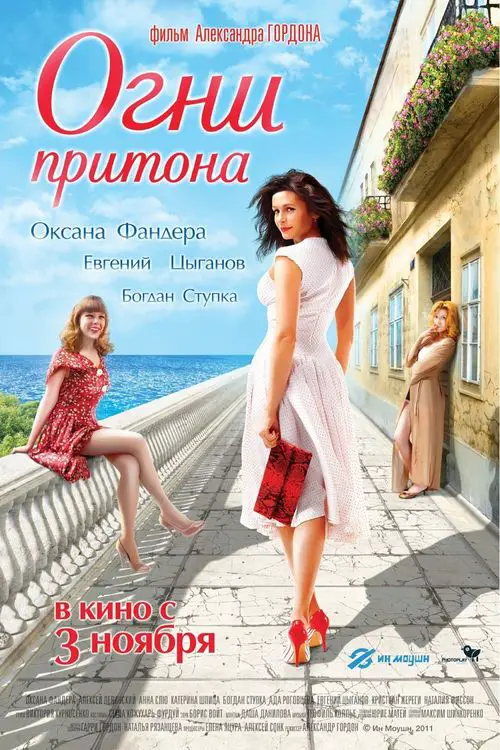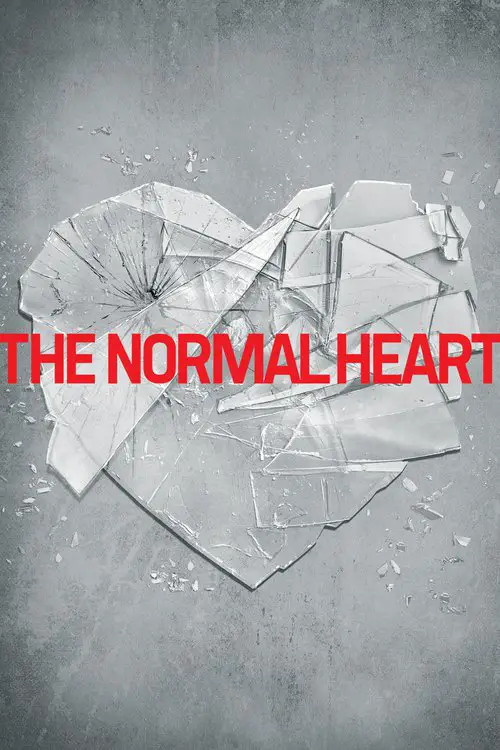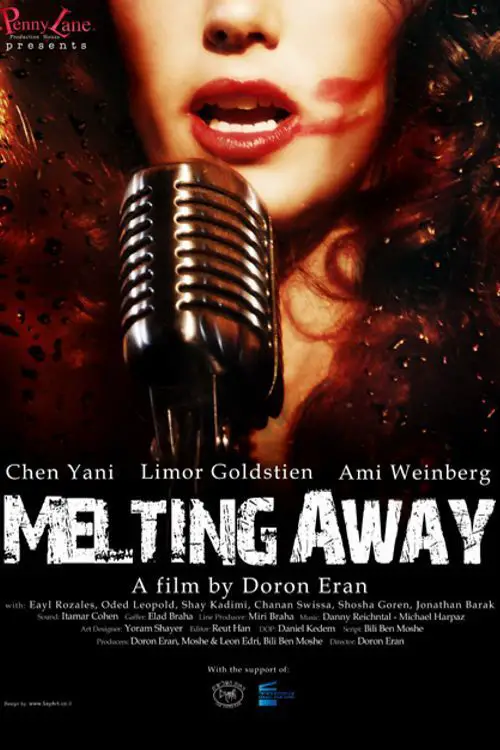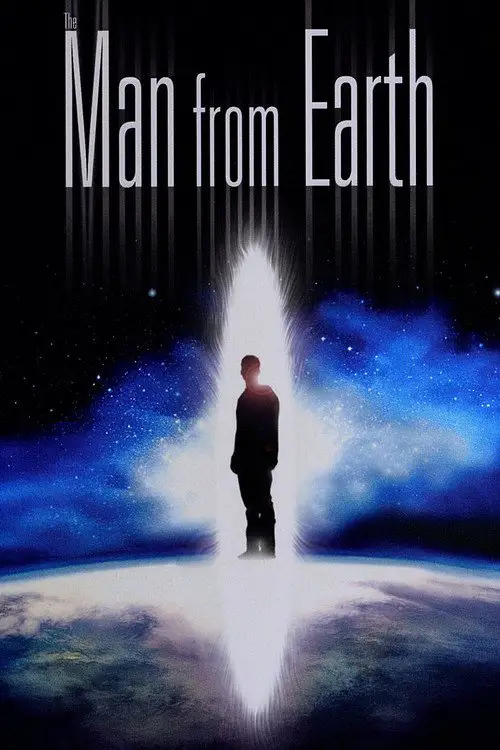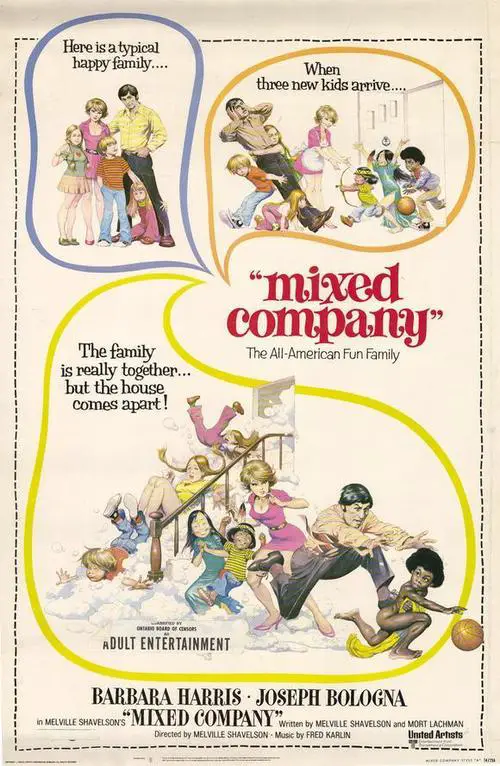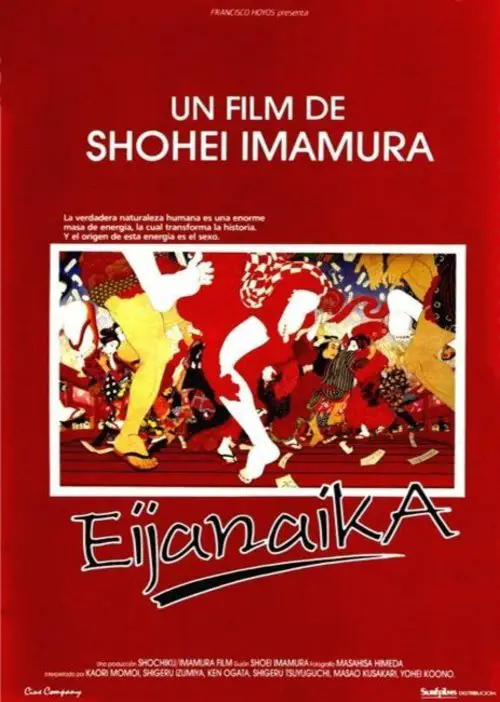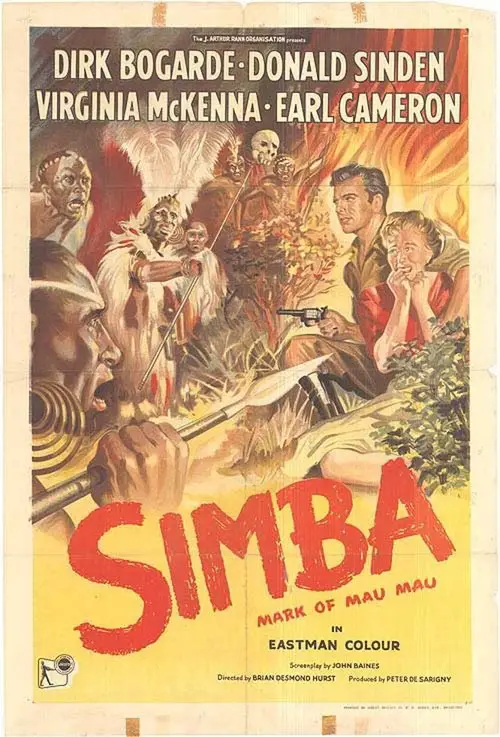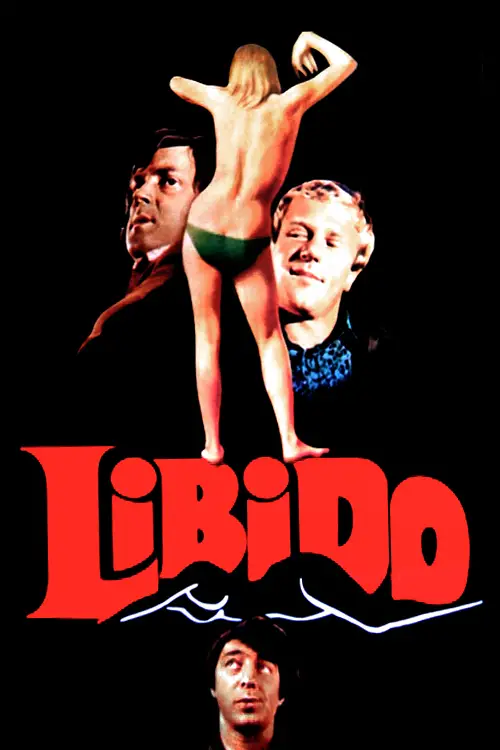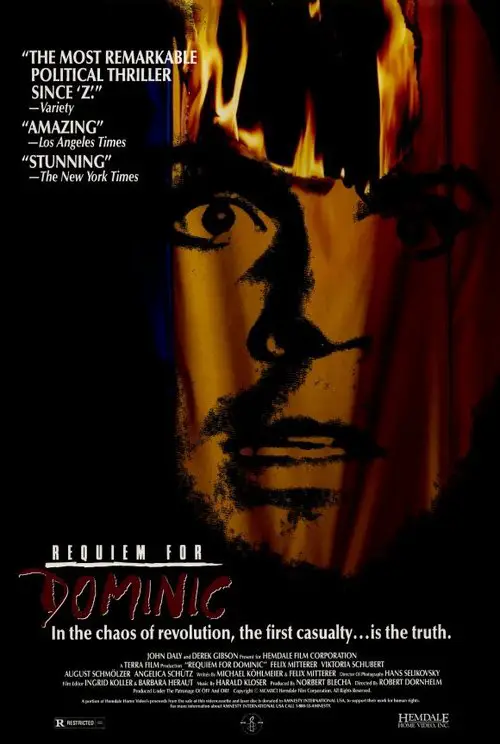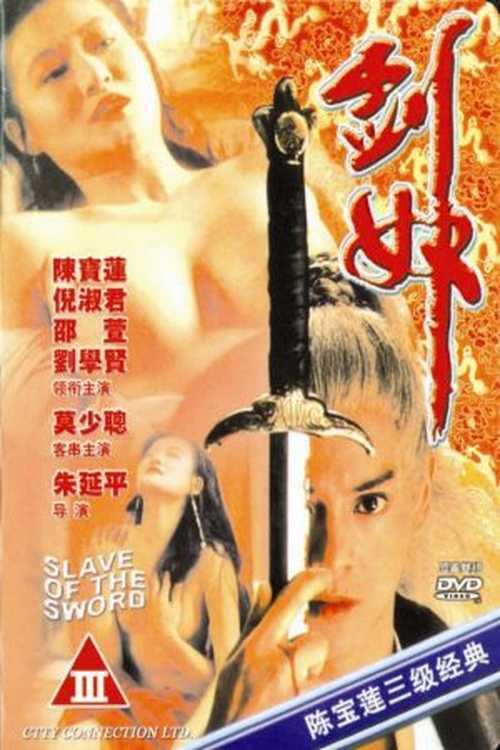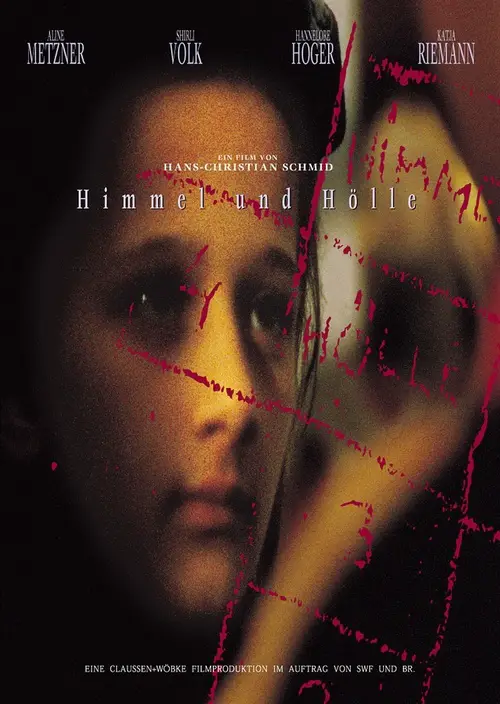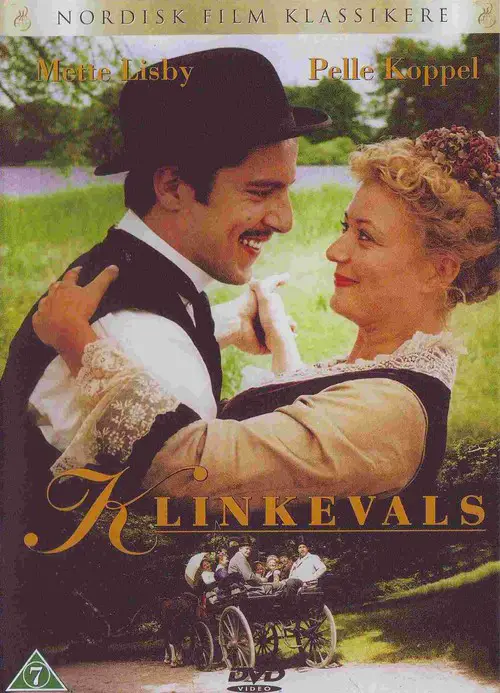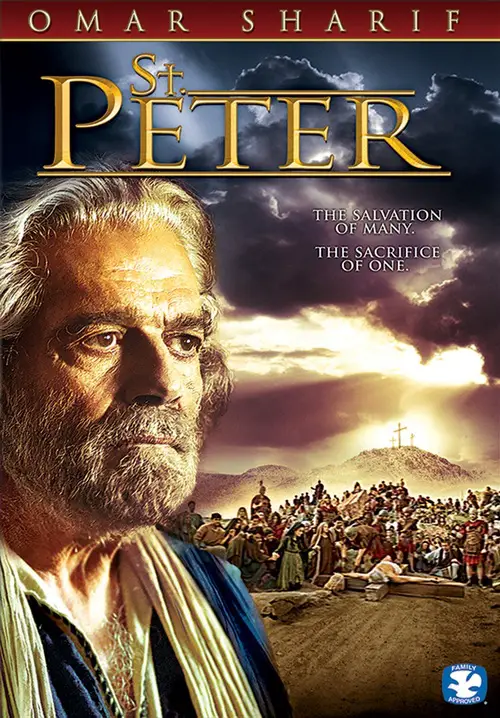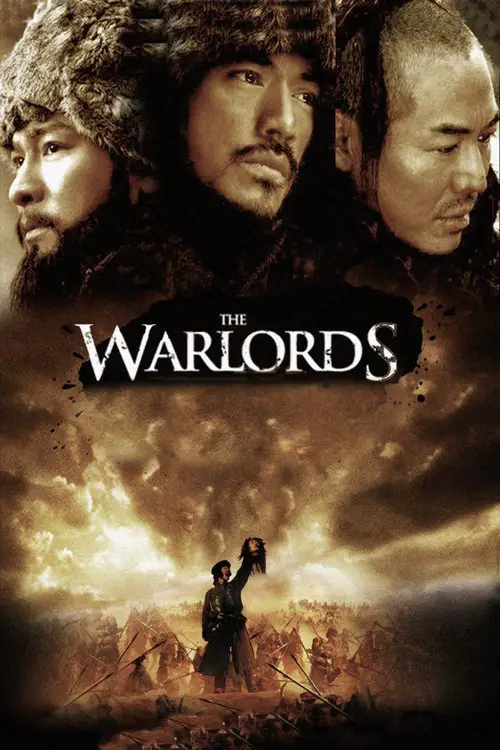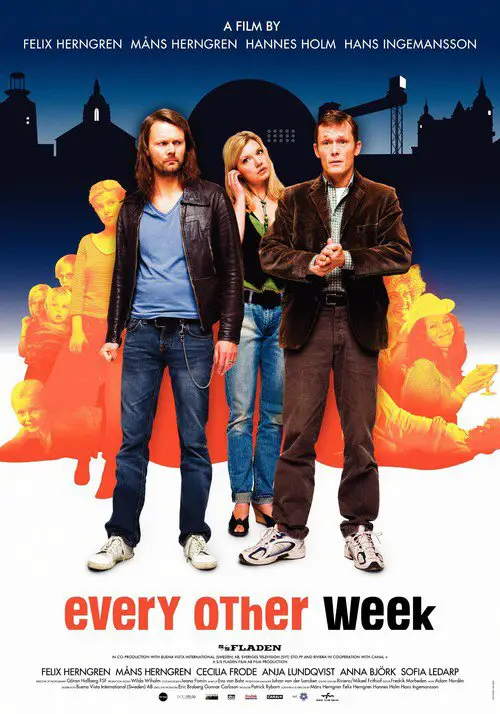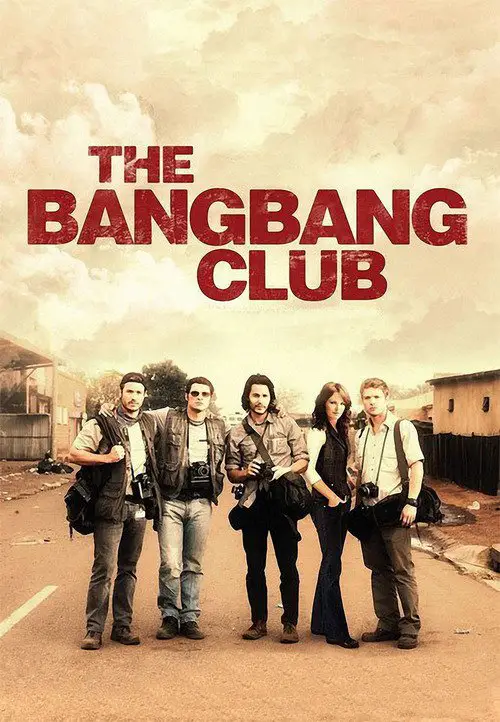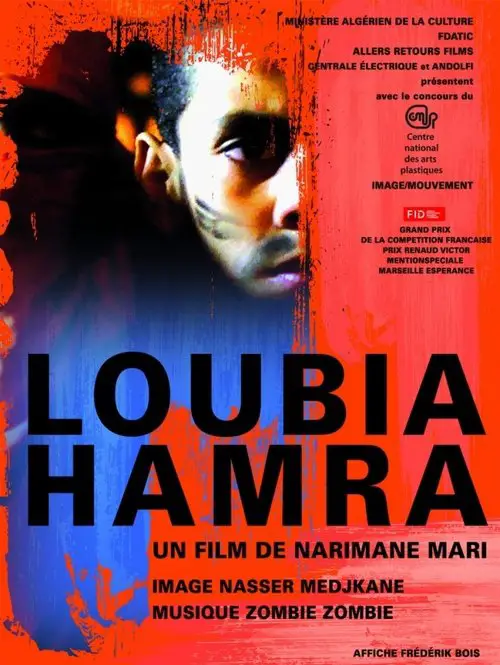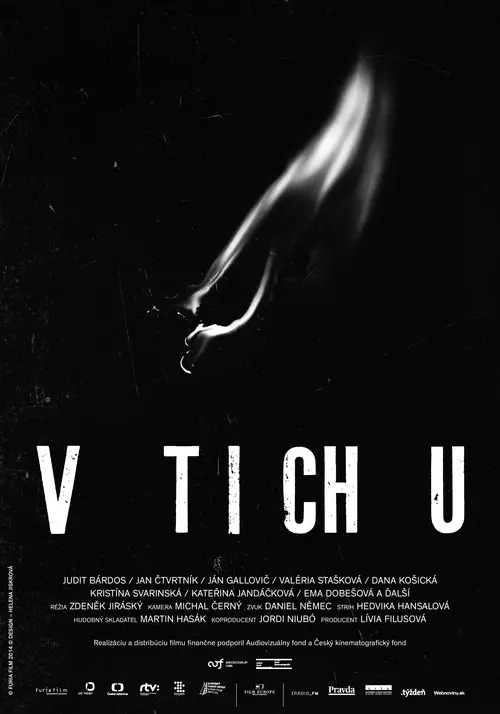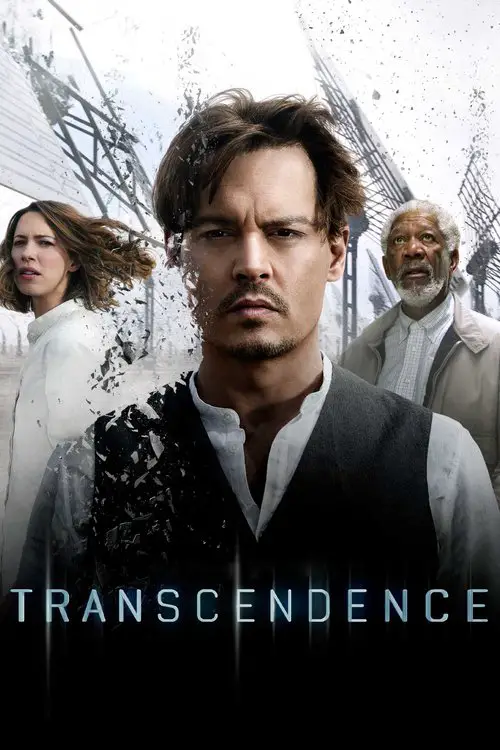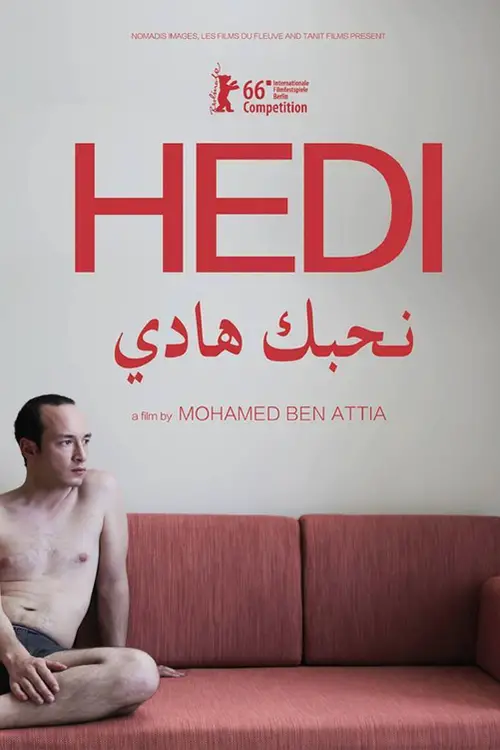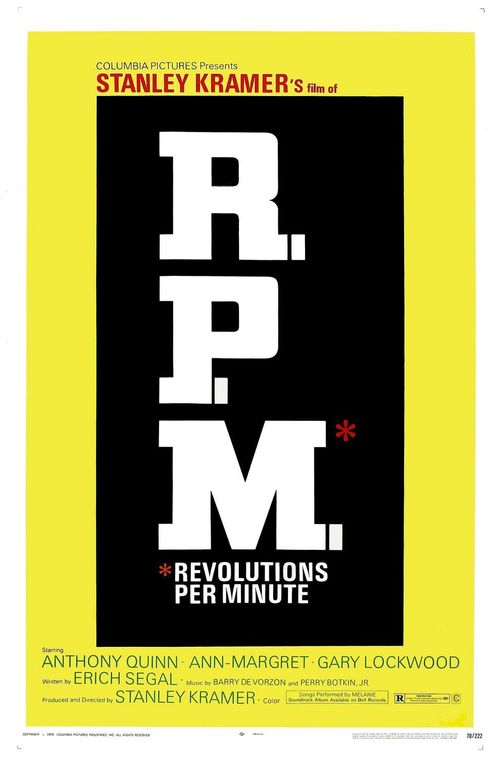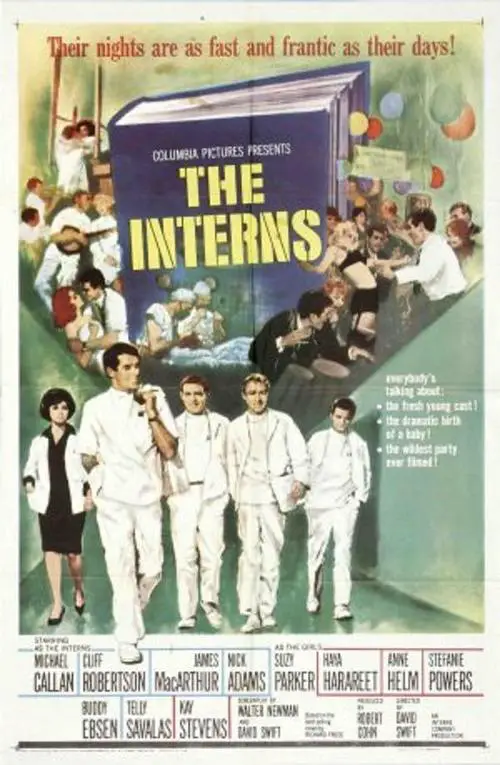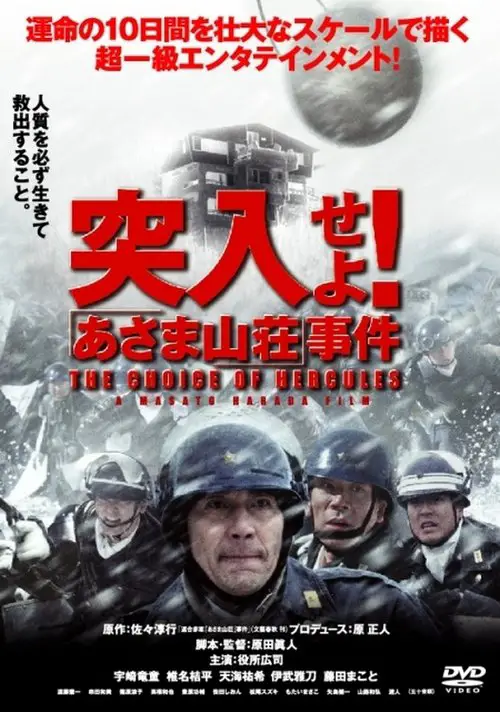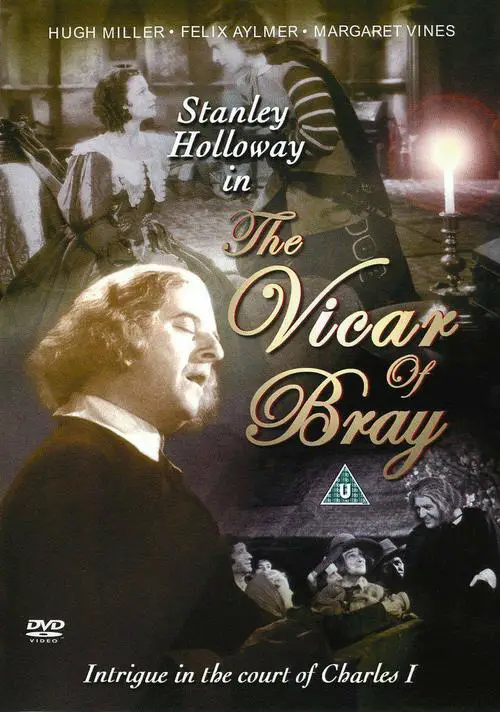Perestroika (2009)

Similar movies
Moi drug Ivan Lapshin is loosely based on several literary works of his father, Iurii German, mainly on his 1938 novel Lapshin. In terms of its historical context, the film exists at the intersection between Brezhnevâs stagnation and Gorbachevâs reforms. Moi drug Ivan Lapshin was completed in the early 1980s, but was not perceived positively at its pre-screening at Lenfilm and was shelved. However, having made several changes to the film, German managed to secure its release few years later, when the political climate began to change. The film was released shortly prior to the Fifth Congress of the Union of Cinematographers, but nevertheless, is always conventionally considered a perestroika film and part of the cinematic new wave that was represented by the new films seeking to address taboo subjects and those films that were unshelved and released for public consumption after the decades of oblivion. (from http://www.obskura.co.uk/stalin-ghost-lapshin/)
A story about a young woman, Vera, who is somebody, living the life of a troubled teenager in the time right before the end of the Soviet Union. She lives in a very small Russian apartment with her mother and father, however being this close to each other makes the living get rough. Their daily life is plagued with massive amounts of alcohol (mainly vodka) and when she tries to escape her home life, she meets up with a boyfriend, Sergei who then moves into her already small apartment after sleeping with her. Every day little Vera has to go through hell just to get by, which even involves her going against her own morals after her father has done something extremely wrong.
Arriving in Moscow, Chechen veteran Danila (Sergei Bodrov Jr) meets Konstantin, an old friend who tells him that his twin brother has been forced into signing a crooked contract with a US ice hockey team. Soon after this meeting, Danila discovers Konstantin dead and he sets out to avenge his death; a journey that leads him to Chicago and a whole new experience.
In 1984, in Kiev, the communist teacher Andrej Romanovic Evilenko is dismissed from his position after a pedophilic act against a student. On 15 May 1984, the pedophile Evilenko begins to rape children, and then slashing the victims in pieces and eating them. The magistrate family man Vadim Timurouvic Lesiev is assigned to catch the serial killer and almost eight years later he finally captures the monster that killed fifty-five persons, most of them children and young women. On 22 May 1992, Evilenko goes to the court and on 14 February 1994 he is finally executed.
An ancient skeleton has been discovered in Jerusalem in a rich man's tomb. Colouration of the wrist and leg bones indicates the cause of death was crucifiction. other signs, include a gold coin bearing the marks of Pontius Pilate and faint markings around the skull, lead authorities to suspect that these could be the bones of Jesus Christ. Politicians, clerics, religious extremists and those using terror as a means to an end, find their beliefs and identities test while risking their lives to unearth the truth.....
Andrew Crocker-Harris is an embittered and disliked teacher of Greek and Latin at a British prep school. After nearly 20 years of service, he is being forced to retire on the pretext of his health, and perhaps may not even be given a pension. The boys regard him as a Hitler, with some justification. His wife Laura is unfaithful, and lives to wound him any way she can. Andrew must come to terms with his failed life and regain at least his own self-respect.
Based on the true story of a Russian serial killer who, over many years, claimed victim to over 50 people. His victims were mostly under the age of 17. In what was then a communists state, the police investigations were hampered by bureaucracy, incompetence and those in power. The story is told from the viewpoint of the detective in charge of the case.
During the Gorbachev years, Platon Makovski and his four buddies are university students who jump on the private capitalism movement. Fast-forward 20 years, Platon finds himself the richest man in Russia, having sacrificed his friends to get to the top. But with this cynical rise, comes a brutal fall.
The genre of the film DUST could be called fantastic realism or existential drama with elements of the fantastic. Dust means the haste in which people live. Dust is a common misconception, the natural clogging up of the brain. Specks of dust how scientists perceive people, scientists who think they know more than anyone else about the universe.
The tale of a troubled small town, and the brave few who made it their mission to keep the community together. As the citizens of a secluded Danish town gradually loose their trust in one and other, the sight of a naked man walking through town in the early hours of the morning sets off an unsettling wave of paranoia.
When the top players of the Green Street Elite are imprisoned following a deadly battle with their archenemies Millwall every day becomes a fight for survival. On the inside, rival firms and prison guards will stop at nothing to make their lives a living hell, leaving the lads with no choice but to stand their ground and fight. Find out what happens when the two most fearsome and notorious firms
A former world-famous conductor of the Bolshoï orchestra, known as "The Maëstro", Andreï Filipov had seen his career publicly broken by Leonid Brezhnev for hiring Jewish musicians and now works cleaning the concert hall where he once directed. One day, he intercepts an official invitation from the prestigious Théâtre du Châtelet. Through a series of mad antics, he reunites his old orchestra, now composed of old alcoholic musicians, and flies to perform in Paris and complete the Tchaikovsky concerto interrupted 30 years earlier. For the concerto, he engages a young violin soloist with whom he has an unexpected connection.
Nagisa Oshimaâs most personal film is a reflection by the director on his own disillusionment with the revolutionary student movement of the 1950âs and the failure of political radicalism. Taking itâs title (as a reference or homage) from Alain Resnaisâ pivotal 1956 documentary Nuit et Brouillard, the film has a group of former student revolutionaries who meet again years later at the wedding of one of their classmates. Old feelings, rivalaries and grudges gradually erupt to the surface as the one-time friends recall the various treacheries by which their cause was defeated. Cutting between times past and the present, and unfolding the action from each of his characters viewpoints, Oshima creates an abstract and yet engrossing study of passions past and principles eroded. âYume Pictures
Shlomo who discovers in his son's Assaf room, women's clothing and accessories, decides to 'teach the boy a lesson'. When Assaf returns to his parents' home on a rainy night from a party, his attempts to enter home fail. His father, with the silent consent of his mother, locked the door. At present, 4 years later, Gallia turns to an investigation agency to help her find her son Assaf and bring him to Shlomo, his father who is dying of cancer. One night, at a night club in Tel Aviv, Assaf is seen performing as a beautiful transgender lady singer who goes by the name of Anna. After a few days a private nurse turns up at Shlomo's room at the hospital, sent as she claims by the insurance agency to assist Shlomo. The nurse is Anna (his son Assaf) and she manages to conquer Shlomo's heart by her charming personality and her special attitude toward life.
The Queen is an intimate behind the scenes glimpse at the interaction between HM Elizabeth II and Prime Minister Tony Blair during their struggle, following the death of Diana, to reach a compromise between what was a private tragedy for the Royal family and the public's demand for an overt display of mourning.
Kathy Morrison (Harris), mother of three, who helps run a "color-blind" adoption program, wants to have another biological child. Her husband, Pete (Bologna), the head coach of the Phoenix Suns, finds out he can't produce another child. Kathy thinks about adopting a boy, Frederic "Freddie" Wilcox, and Pete does not want to adopt a boy who happens to be black. When he relents, Freddie's arrival causes an upheaval in the Morrison's neighborhood, their school, and family. Kathy's answer is to adopt another child, in this case two, a war-traumatized half-Vietnamese girl, Quan Tran, and a Hopi boy, Joe. The new extended family must now learn to live together.
The film depicts carnivalesque atmosphere summed up by the cry "Ee ja nai ka" ("Why not?") in Japan in 1867 and 1868 in the days leading to the Meiji Restoration. It examines the effects of the political and social upheaval of the time, and culminates in a revelrous march on the Kokyo, which turns into a massacre. Characteristically, Imamura focuses not on the leaders of the country, but on characters in the lower classes and on the fringes of society.
It is the year 33 of the Vulgar Era. The Emperor Tiberius is troubled by strange phenomena, an earthquake and the sky turning black as an eclipse. His astrologers give him fair warning: their omens indicate that the world is in the throes of a great upheaval and that old gods have been annihilated. A new kingdom is about to rise in the East. The Emperor calls Tito Valerio Tauro, the most prominent
White farmers in Kenya come under siege from the Mau Maus. Some natives try to help them and it's later discovered that the father of a native doctor is the secret leader of the Mau Maus. The film capitalizes on the political upheaval taking place at the time of its filming in Kenya, which was anxious to attain its independence from British colonial rule.
Scripted by four of Australiaâs greatest authors (David Williamson, Thomas Keneally, Hal Porter and Craig McGregor), this quartet of carnal desires explores adultery and jealous fantasies, the end of innocence, the moral and spiritual conflicts of a priest and a nun in love. The stories define the exploration of women and the cultural upheaval of the early 70s.
During a period of upheaval, an itinerant performer has a troupe of four children, one of whom is his daughter Mu-Lin. Jump ahead 15 years, he's ready to retire and has arranged Mu-Lin's marriage. Someone he recognizes enters his house and murders him. Mu-Lin is brought to a fancy bordello where the most beautiful prostitute, Yeh Hong, takes a special interest in her. One of Yeh Hong's lovers, Kim, who is an assassin, also develops a relationship with Mu-Lin. He and Yeh Hong may be working with the emperor's eunuch; all are power hungry. Things seem more than coincidental: does Mu-Lin have a history with this trio? If so, what is it?
11-year-old Nina and her mother Birgit move to the countryside. But while Birgit seems to cope very well with the upheaval, the shy young girl only feels accepted when she joins a girl guide group. Nina's new teacher for Religious Education, the organizer of the group, and the parson belong to the fanatically pious "Legion Of The Holy Angels", a sect preparing its members for the final battle between demons and angels. As Birgi's behaviour doesn't conform to her daughter's ideas, Nina sacrifices a black kitten which allegedly has a bad influence on Birgit. But this only makes things worse, for Birgit eventually forbids her daughter to go to the scouts' sessions and thereby loses her trust. Nina's friend Miriam is having a hard time being accepted by the scouts and leaves them when she isn't allowed to participate in an important ceremony. Nina is faced with a difficult decision...
The story of Juliane, a young woman who learns how to take her fate in her own hands and to trust nobody but herself. The plot is set in the Copenhagen tenements of the 1880s. Juliane is trapped in an unhappy marriage to a man who suffers extended periods of insanity. They have two children. She struggles to improve her social status, however, striving to attain the level of her two elder sisters is not easy. The great upheaval comes when she meets Otto, a smith, younger than Juliane, and in many ways her opposite. He is an ardent socialist, whereas she believes in herself. It is love at first sight when they meet and waltz on the pavement, but their passion really bursts into flame as time goes by. At last Juliane has found a man as strong-willed as she is.
This movie tells the true story of John Reed, a radical American journalist around the time of World War I. He soon meets Louise Bryant, a respectable married woman, who dumps her husband for Reed and becomes an important feminist and radical in her own right. After involvement with labor and political disputes in the US, they go to Russia in time for the October Revolution in 1917, when the Communists siezed power. Inspired, they return to the US, hoping to lead a similar revolution. A particularly fascinating aspect of the movie is the inclusion of interviews with "witnesses", the real-life surviving participants in the events of the movie.
The struggles of an artist. Jang Seung-up (1843-1897), also called Owon, focusing on the years 1882 to 1897, when Korea was in political upheaval, caught between China and Japan, the conservative dynasty dying, and peasant revolt at hand. Jang, born poor, has genius; a merchant, Kim, becomes his patron, finding him a teacher. Jang must convince others that a commoner can have talent, then move beyond his ability to copy old masters and find his own style. He's bedeviled by a temper and alcohol, arguments with patrons as he seeks commissions, and relationships with kisaeng, particularly Mae-hyang, that start and stop. It's the life of a restless spirit producing great art.
Thirteen-year-old Ramon is on the verge of many adolescent discoveries -- and the confusion that goes along with them. Shy and awkward, he's moved from town to town throughout his childhood and believes that life is about winning and losing. But he soon learns it's all about survival. Like Ramon, Spain is in transition (President Francisco Franco is about to die); it's a time of social upheaval marked by change, illusion and struggle.
Saint Peter, a reluctant but passionate leader, from the crucifixion of Jesus to his own. The film's first half dramatizes the New Testament's "Acts": early fear, the renewal of Pentecost, Saul's conversion, the decision to baptize pagans, and the Apostles' dispersal. In the second half, an aged Peter goes to Rome to join Paul, arriving on the day of Paul's arrest. Paul's death brings a crisis to Rome's Christians and to Peter; lessons from Jesus's teachings guide his decision to stay. Events within the fictive household of Persius, a Roman aristocrat, capture the upheaval that Christian teachings bring to the Eternal City.
Ben Cooper and his family struggling to get a grip on household chores, school and work. Ben is the family caretaker. So when Ben sees that a Smart House is being given away, he enters the competition as often as he can. The family wins the house (named Pat). After moving in Pat's personality begins to radically change, the family starts to resent her.
Pontus is divorced and has custody of his children every other week while living life as a bachelor the rest of the time. His older brother, Jens, is married since 20 years and has three children. When Jens' marriage collapses, he moves in with his younger brother - a move which will change both of their lives radically.
In the early to mid '90s, when the South African system of apartheid was in its death throes, four photographers - Greg Marinovich, Kevin Carter, Ken Oosterbroek and João Silva - bonded by their friendship and a sense of purpose, worked together to chronicle the violence and upheaval leading up to the 1994 election of Nelson Mandela as president. Their work is risky and dangerous, potentially fatally so, as they thrust themselves into the middle of chaotic clashes between forces backed by the government (including Inkatha Zulu warriors) and those in support of Mandela's African National Congress.
On an Algerian beach, kids splash about, sleep, squabble - and then suddenly go to war. And itâs neither Lord of the Flies nor La Guerre des boutons. In her first film, full of grace, Narimane Mari films this childish freefor- all closely, at the irregular pace of an imagination inspired by the highest form of reality, national History â actually, nothing less than the Algerian War of Independence. When their make-believe induces a general upheaval, we follow the flock of children as they stamp their feet up the stairs, invade houses, cross village squares, in a whirlwind of shouts and empty words. Time is stretched like in a dream, through a choreography of belligerent shadows or the night-time explosion of the cemetery, as so many warning signs of dangers to come.
Slovak musicologist Agata Schindlerová, now settled in Dresden, has spent years mapping out the forgotten destinies of Jewish musicians whose lives were irrevocably marked by the advance of nazism. Scenes from the lives of several of them are portrayed in the film In Silence (ballet dancer Alice Flachová, pianist and conductor Karol Ebert, composer, conductor and director of the Dresden Theatre Arthur Chitz, pianist Edith Kraus, and the vocal ensemble Comedian Harmonists), which draws a sharp contrast between the protagonistsâ carefree existence working and making music during the pre-war era and the subsequent severe upheaval in their lives brought on by the proliferation of nazism.
Young Tunisian Hedi lives an ordered life in which he believes there can be no more surprises. His future will play out as other people have planned, until he meets a young woman named Rim at a hotel in Mahdia Hediand. An ostensibly personal story broadens into a panorama of a society in upheaval, an allegory about breaking away from traditions. And a film about the happiness and pain of freedom.
R.P.M. stands for (political) revolutions per minute. Anthony Quinn plays a liberal college professor at a west coast college during the hedy days of campus activism in the late 1960s. Radical students take over the college, the president resigns, and Quinn's character, who has always been a champion of student activism, is appointed president. As the students continue to push the envelope of revolution, Quinn's character is faced with the challenge of restoring order or abetting the descent into anarchy.
The Grand Budapest Hotel tells of a legendary concierge at a famous European hotel between the wars and his friendship with a young employee who becomes his trusted protégé. The story involves the theft and recovery of a priceless Renaissance painting, the battle for an enormous family fortune and the slow and then sudden upheavals that transformed Europe during the first half of the 20th century.
When radicals from Japan's Red Army took a woman hostage in the resort town of Karuizawa, Nagano in 1972, Officer Atsuyuki Sassa was put in charge of diffusing the situation. But the task had its challenges. Upon arriving in mountainous Nagano, Sassa had to compete with freezing winter temperatures, conflicting opinions between the Tokyo Metropolitan Police and the Nagano Prefectural Police, as well as public opinion to gain entrance to the lodge that held the single woman captive.
The Vicar of Bray is a satirical description of an individual fundamentally changing his principles to remain in ecclesiastical office as external requirements change around him. The religious upheavals in England from 1533 to 1559 and from 1633 to 1715 made it almost impossible for any individual to comply with the successive religious requirements of the state.
© Valossa 2015–2026
| Privacy Policy
